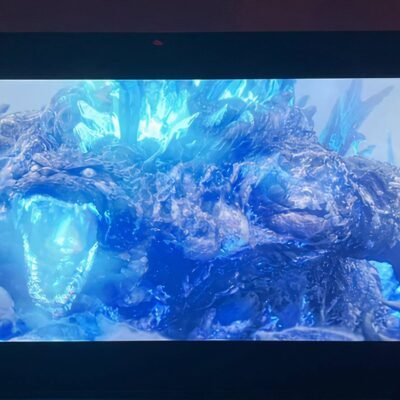(RNS) — It has been called many things — a protest, a movement, a civic awakening — but at its core, the “No Kings” moment in the United States has been something deeper: a moral rebellion against idolatry. When millions of Americans gathered in city squares and on courthouse steps holding signs that read “No Kings,” they were not simply making a political statement. They were engaging in a profoundly Jewish act — rejecting the worship of power, refusing to anoint any human being as sovereign.
By some estimates, more than 7 million people participated nationwide in demonstrations, vigils and marches last weekend, in more than 2,600 locations around the country. It was simultaneously modern and ancient: an echo of that biblical instinct to remind rulers, and ourselves, that ultimate authority belongs not to human rulers, but to God and to the moral law.
Mel Brooks, who is close to a century old, put it this way in his first “History of the World” film: “It’s good to be king.” Judaism, though, is not so sure. The Bible gives us both good kings — David, Hezekiah, Josiah and Cyrus of Persia — and some who were truly mediocre and even bad: Rehoboam, Ahab and a bunch of rulers who were totally forgettable.
Why this ambivalence? Look at the world that birthed ancient Judaism. Take that thing about people being created in the image of God. In the ancient Near East, who, specifically, was created in the divine image? The king and only the king. In Egypt, the king was a god. The Roman emperors went further, calling themselves “sons of God.”
Only the ruler bore the divine likeness. No one else did.
But Judaism makes the audacious claim that all people – not just the king – are created in the divine image.
That is why the Torah treats monarchy with suspicion. Go to Deuteronomy, Chapter 17: “When you say, ‘Let me set a king over me, like all the nations around me,’” God says, “you may indeed set a king over you.”

Thousands of protesters fill Times Square during a “No Kings” protest, Oct. 18, 2025, in New York. (AP Photo/Olga Fedorova)
May, not must. The Torah insists that kings come with strings attached. He may not acquire too many horses — the ancient symbol of military excess. He may not take many wives or amass great wealth. He must write his own copy of the Torah and study of it. Think of it: The king is not the author of the law but its perpetual student.
The king must obey God. That is the reversal at the heart of the Jewish political vision. Maimonides, writing in the 12th century, made this explicit: “The king must not exercise his authority in a stuck-up manner. He should deal graciously and compassionately with the small and the great. … When he addresses the public, he shall use gentle language.” Imagine if that ethic governed modern leadership.
And, by the way, who is the king, anyway? The Torah calls the ruler achicha — “your brother” — the same word that describes the slave. The metaphor of brotherhood shatters hierarchy. Whenever I am in Israel, I notice how Israelis refer to their leaders, present and past, with a level of casual familiarity. It was “Golda.” It was BG (Ben Gurion). It is “Bougie” (President Isaac Herzog). And, yes, it’s Bibi, even for those who do not particularly like the current prime minister.
All of this makes the “No Kings” moment in America feel almost biblical. For what are these protests, if not a collective recitation of Deuteronomy’s warning — to be very careful about kings?
In our time, the temptation to bow before human power has taken on a distinctly American form: the cult of personality around Donald Trump. For some, Trump is a religious figure, who is adored, defended and excused no matter what he says or does.
This is where faith must draw its line in the sand. David Brooks put it precisely:
I am not one of those who believe that Donald Trump has already turned America into a dictatorship. Yet the crossing-over from freedom into authoritarianism may be marked not by a single dramatic event but by the slow corrosion of our ruling institutions — and that corrosion is well under way. For 250 years, the essence of America’s democratic system, drawing on thinkers going back to Cicero and Cato, has been that no one is above the law. Public officials’ first duty is to put the law before the satisfaction of their own selfish impulses. That concept is alien to Trump.
Trump’s actions…are part of one project: creating a savage war of all against all and then using the presidency to profit and gain power from it. Trumpism can also be seen as a multipronged effort to amputate the higher elements of the human spirit — learning, compassion, science, the pursuit of justice — and supplant those virtues with greed, retribution, ego, appetite. Trumpism is an attempt to make the world a playground for the rich and ruthless, so it seeks to dissolve the sinews of moral and legal restraint that make civilization decent.
Brooks names what Judaism has always feared about kingship: that unchecked power erodes the soul, that greed masquerades as greatness, that ego blinds us to justice. It is why Jews — and all people of conscience — must oppose any leader who tries to dissolve the moral fabric that binds a society together. The Torah’s insistence that every ruler must write a Torah scroll is not a ritual commandment. It is a blueprint for humility. It teaches that leadership is a sacred trust, not a personal brand. That lesson feels urgent again in a country where public servants are tempted to act like sovereigns and citizens are tempted to worship them.
The “No Kings” movement, at its best, is not about partisanship; it is about theology. It is about remembering who truly reigns. It is about saying, with both faith and fury, that there is no man, no ruler, no president who is above justice, above truth, above God.
What Judaism teaches about kingship is what democracy must relearn: that power is a dangerous gift. It must be bound by humility, compassion and accountability. Beyond every throne — whether in Jerusalem, Washington or Mar-a-Lago — there stands another throne, invisible and eternal, occupied by the One who alone is sovereign.
So yes — no kings. Because when everyone is a child of God, no one gets to play God. And as our tradition teaches, we still await that day when Adonai yihyeh l’melech al kol ha’aretz — when the Lord will be King over all the earth, and human rulers will finally remember that they were meant to serve, not to reign.





